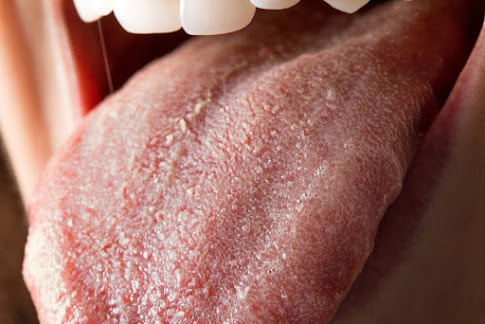What Is Oral Thrush and Who Is at Risk for Getting It?
Oral thrush is a difficult condition to diagnose at first. It's usually harmless and not painful, but it can be very unpleasant and have a significant impact on your quality of life. Oral thrush is caused by Candida yeast fungi that live in the mucous membranes lining your mouth. This fungus is responsible for the medical term "oral candidiasis." Candida albicans, a type of Candida fungus, is the most common cause of oral thrush.
Most people have small amounts of Candida on the mucous membranes lining their mouth, which rarely causes any problems. However, given the right conditions, the fungus can grow very quickly. This frequently affects people who have serious diseases, but it can also affect healthy people.
Symptoms
Oral thrush appears as a white coating covering your mouth and throat. Scraping it off with a tongue depressor reveals inflamed red areas that frequently bleed slightly. People with oral thrush will experience a constant cottony feeling in their mouth, even if they practice good oral hygiene. Their sense of taste will be compromised, and they may experience pain or a burning sensation on their tongue. This can make eating and drinking difficult. Severe oral thrush can also impair your ability to swallow or communicate.
Oral thrush is frequently caused by another medical condition or as a side effect of medical treatment. It is one of the most common cancer treatment side effects. Chemotherapy can harm mucous membranes and weaken the immune system, making it easier for the fungus to spread. Oral thrush is also increased by radiotherapy in the head and neck region. The more intensive the treatment, the more likely it is that oral thrush will develop.
Oral thrush can also be exacerbated by dentures, diabetes, and certain medications (for example, broad-spectrum antibiotics taken for several weeks at a time). Infections are more likely to occur when the body and immune system are compromised. This can occur as a result of HIV/AIDS, for example.
Oral thrush rarely causes serious health problems, but it can be extremely unpleasant. If the fungus spreads to your food pipe, for example, it may cause swallowing problems. In addition to the usual symptoms, this may cause people suffering from oral thrush to eat less and lose weight. This is especially problematic if they are already weakened by another medical condition or treatment, or if they have other issues such as nausea or a lack of appetite.
Oral thrush can last for months or even years if left untreated. In rare cases, fungi may penetrate deeper layers of tissue, reaching the circulatory system and causing life-threatening blood poisoning if your immune system is compromised (sepsis).
Treatment
Antimycotics can be used to treat oral thrush. Some of these medications can be applied directly to the affected mucous membranes in the mouth (topically). Other types are consumed. They will then spread throughout your body (systemic treatment). Through saliva, small amounts of topically applied medication enter the gastrointestinal tract (stomach and bowel). Some of the medication is absorbed and spreads throughout the body.
Antimycotics that are taken orally are likely to be less effective than those that are applied topically. This is what research involving people with cancer or HIV/AIDS suggests. However, they can cause temporary headaches, rashes, nausea, flatulence (wind), and diarrhea.




Comments
Post a Comment